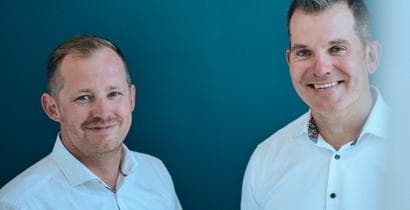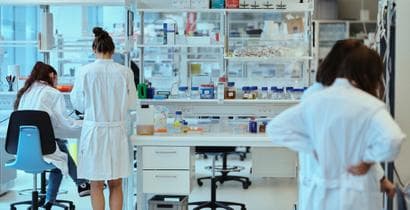BII Chief Business Officer, Bobby G. Soni on bringing together life science start-ups within
Therapeutics, bioindustrials and health tech
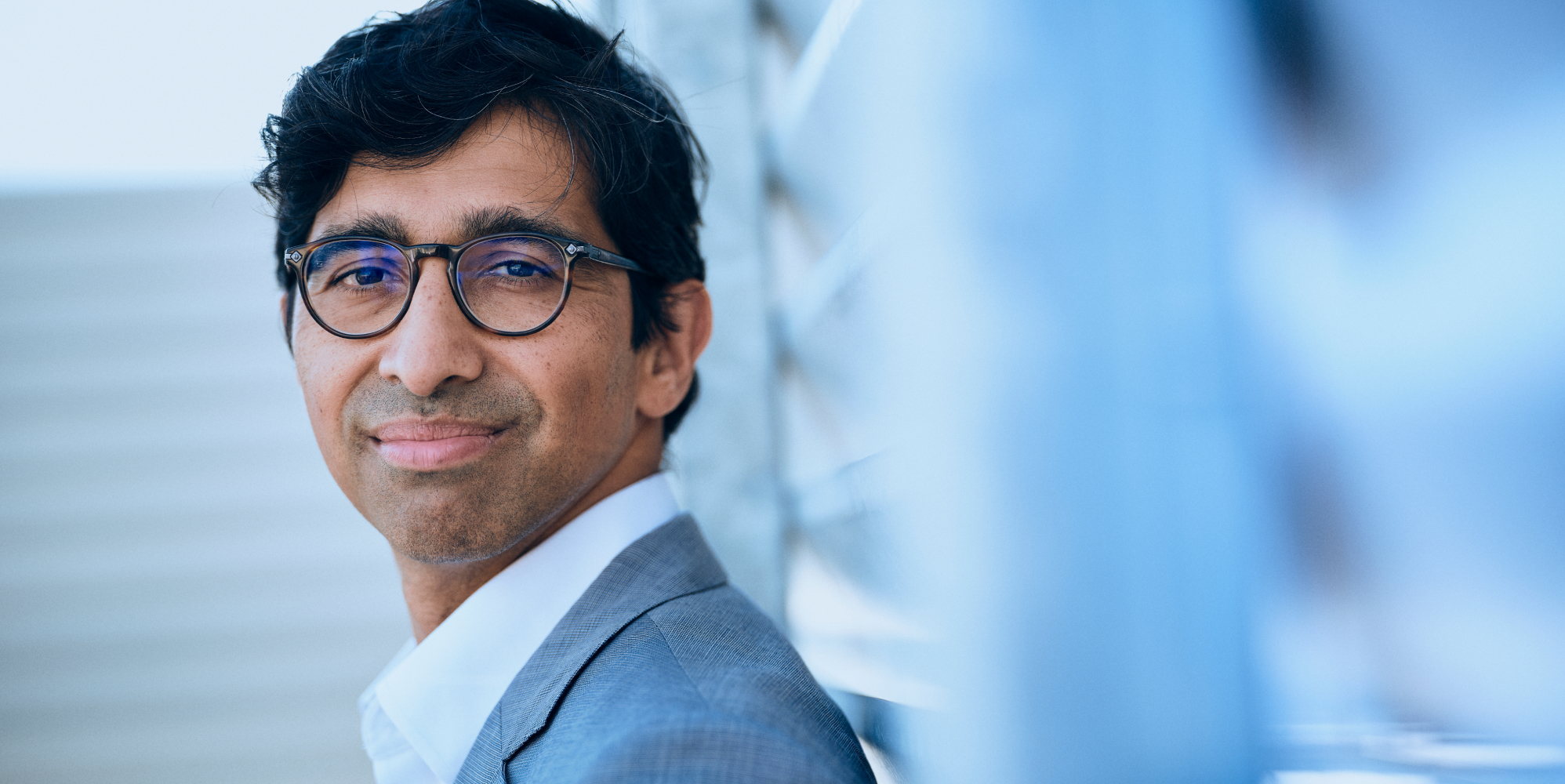
“While most incubators worldwide focus on a narrow scope, we have chosen to broaden ours.“
At BioInnovation Institute, we offer incubation programs to life science projects and start-ups within therapeutics, bioindustrials, and health tech. Three areas that can truly make an impact on global health and the environment but not without initial funding, the right network, and business development to eventually reach the market.
It is clear how different the entrepreneurial journey is in therapeutics, bioindustrials, and health tech. To meet the needs of our start-ups, BII has hired a diverse team of business developers, each with strong experience and a global network in the three industries.
What is also apparent, however, is that every start-up - no matter the industry - benefits from being in an entrepreneurial environment. Building a life science start-up takes a certain mindset and a commercial understanding of what makes an attractive case to investors, and that is difficult to bring out on your own.
In the following short interviews, you will meet three start-ups that came to BII for support on their entrepreneurial journey and made the cut amongst the high-quality applicants for our programs. With the solutions they are offering, I feel confident that we have not seen the last of them.
Meet the therapeutic start-up Adcendo
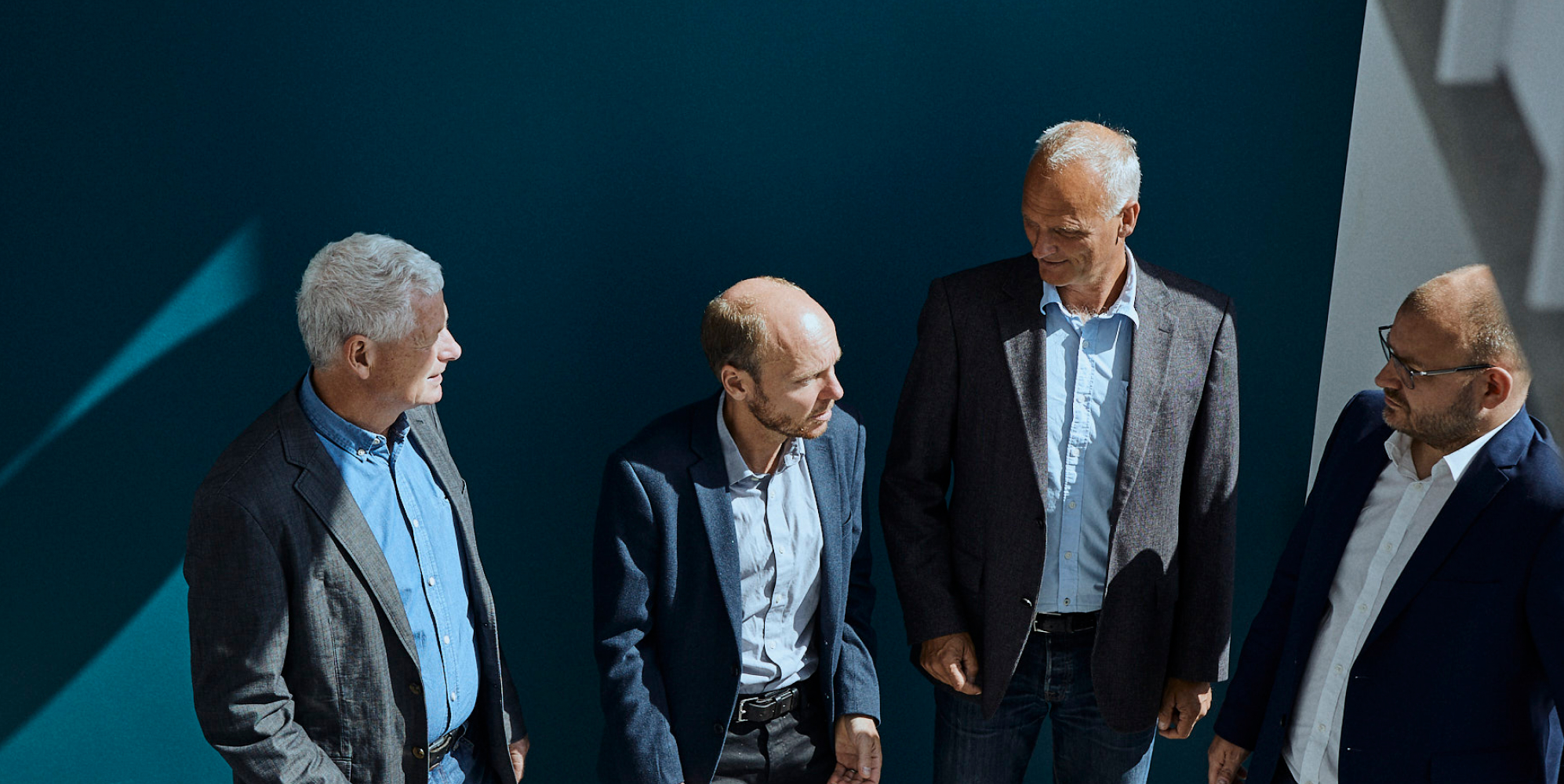
Founding team
CSO Niels Behrendt, COO Lars Henning Engelholm, CEO Henrik Stage, CTO Christoffer Nielsen
Company profile
Adcendo is developing antibody-drug conjugates (ADCs) for the treatment of several cancer indications with the strongest focus on soft-tissue sarcoma, a cancer type occurring in many places in the body. Additional cancer types in scope include glioblastomas, which are found in the brain, and osteosarcomas, which are bone cancers.
In 2017, the founding team published early proof of concept through studies conducted at The Finsen Laboratory, a research unit at Rigshospitalet and The University of Copenhagen. Here, they demonstrated a 100 percent cure rate of cancer-bearing mice treated with a first- generation drug candidate. Since then, Adcendo has optimized its drug candidates and obtained further promising data from animal models, including advanced PDX cancer models.
The project has received grants from both Novo Seeds and Innovation Fund Denmark.
3 Q&A’s w. CTO Christoffer Nielsen
What did you see BII could offer to your journey?
Two things that are fundamental when taking a scientific discovery from academia to a biotech spinout: funding and network. Funding would enable us to broaden our activities, and an international network would provide the necessary exposure to potential partners and investors.
What have you taken from your time with BII?
We have refined our results and drug candidates, built strong data packages, and chosen a lead candidate. An important learning for our scientific team is that there is a lot more to drug development than what we can demonstrate in the lab. In that sense, we have transformed our academic mindset significantly during our incubation at BII.
What difference has BII made for Adcendo?
Everything. To take an academic discovery and mature it into something that is both commercially and clinically viable requires an active entrepreneurial environment. It would most likely have been extremely difficult if we had stayed at the university or moved to an office hotel with lab facilities. Additionally, the broad exposure to VC’s and potential partners that BII has facilitated would have been very hard to get if we had emerged from academia on our own.
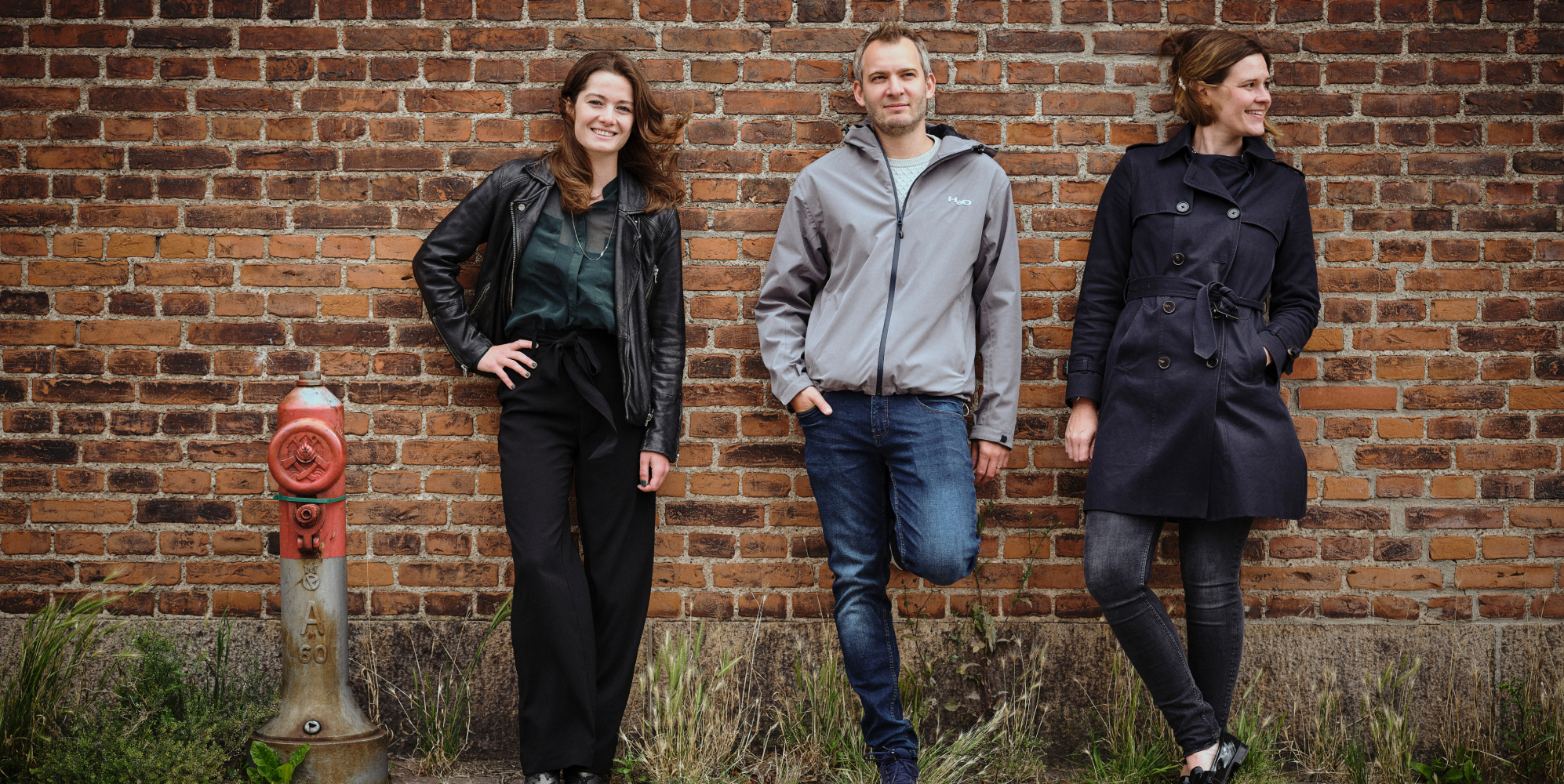
Meet the bioindustrial start-up Chromo-logics
Founding team
CEO Gerit Tolborg, CSO Anders Ødum, Thomas Ostenfeld Larsen, Andreas Laustsen, Henrik Dalbøge
Company profile
Chromologics has developed a fungal biotech platform to produce natural colorants. No genetic engineering is involved, as the colorants are based on a wild type of filamentous fungi.
It was CEO Gerit Tolborg who made the scientific breakthrough in 2016 when she developed a process that allowed her to isolate and identify this new class of pigments. By designing a fermentation process in lab-scale bioreactors, she managed to single out one pigment from a pigment-cocktail, a novel process that opened up for the application of ChromoRed in consumer products.
The project has received grants from the Novo Nordisk Foundation, The Technical University of Denmark, and Innovation Fund Denmark. In August 2020, Chromologics was funded with EUR 1.9M by Novo Holdings, Nordic Food Tech VC, and Vaekstfonden.
3 Q&A’s w. CEO Gerit Tolborg
What did you see BII could offer to your journey?
We were looking for more business insight and a nice polish to become an attractive case for investors. We felt we needed the right language and a better understanding of what to focus on in our meetings with the business world.
What have you taken from your time with BII?
We have a much stronger slide deck focused on customer and market rather than technology. We have seen the importance of storytelling, and the business development team helped us identify an additional IP opportunity that we could pursue due to the funding we received. On a personal level, it has also given us faith in our idea and courage to further pursue it.
What difference has BII made for Chromologics?
For us, it has made a huge difference. BII was the lifeline that took us from being a university spin-out to an attractive investment case. We were surprised by the network the BII team has exposed us to, and we quickly saw how being associated with BII was a quality stamp in conversations with potential investors.
Meet the health tech start-up WARD 24/7
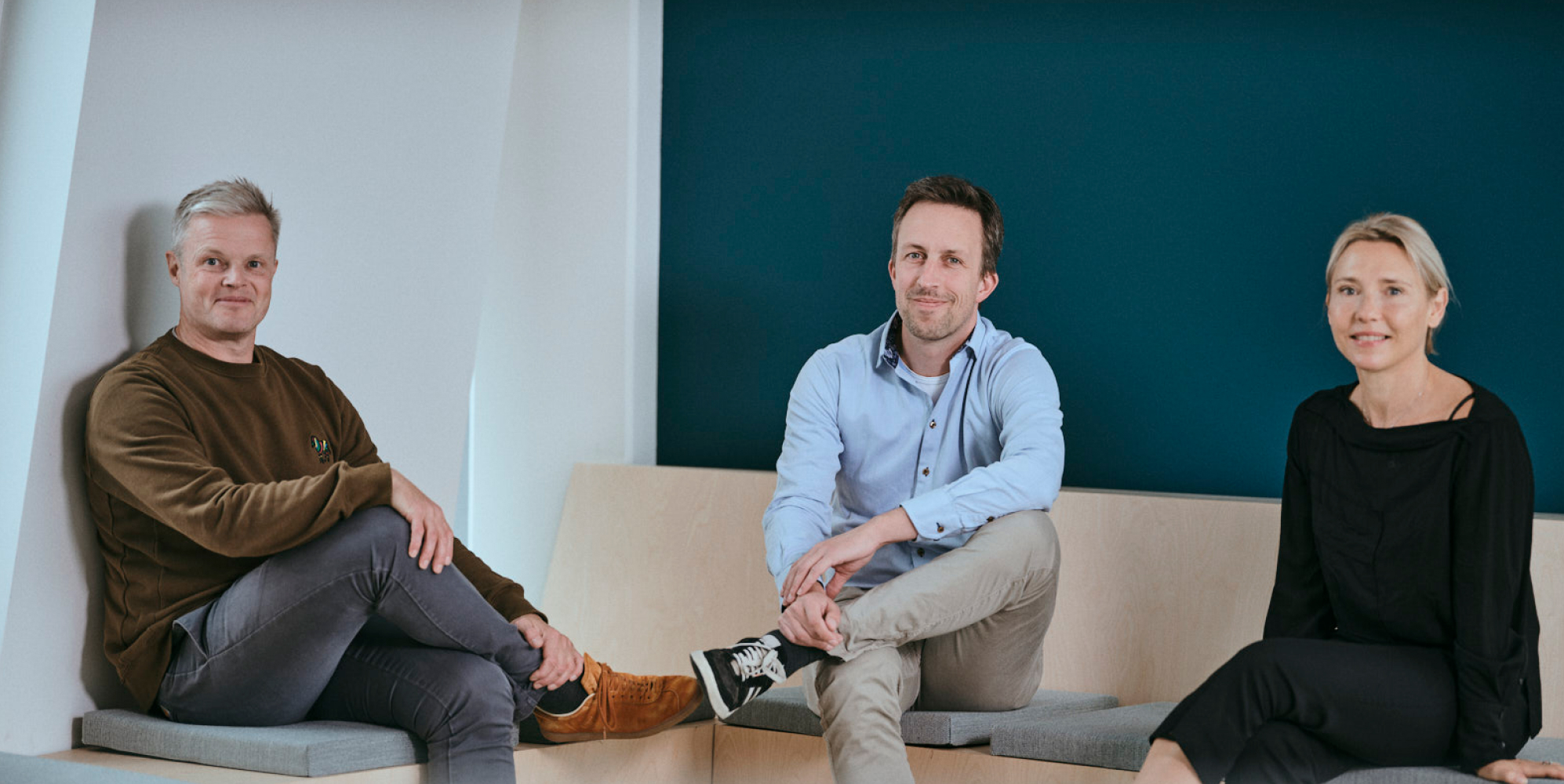
Founding team
CRDO Eske Aasvang, CMO Christian Meyhoff, Advisor Helge Sørensen
Company profile
WARD 24/7 is aiming to transform the way patients are monitored in the general ward through artificial intelligence and wireless sensors. Their solution is a technology that interprets the patterns of different vital signs such as skin temperature, pulse, oxygenation and heart rhythm to predict destabilization.
The company is the result of an interdisciplinary collaboration between two medical doctors, Eske Aasvang and Christian Meyhoff and researcher from the Technical University of Denmark.
During the COVID-19 pandemic, the scientific team implemented an early version of the technology to minimize the number of close contacts between health care staff and hospitalized COVID-19 patients.
The company has received a grant from EIT Health to initiate commercial development of the technology.
3 Q&A’s w. CEO Betina Langemark
What did you see BII could offer to your journey?
We knew that even with experience in how to access the health tech industry, we would have a much better chance of getting through to the right people if we joined BioInnovation Institute. My experience tells me that is it not always enough to have a good investment case.
What have you taken from your time with BII?
We now have access to some really good experts in the regulatory area, which has been a huge advantage. Focusing on building a sharp business case through an intense period at BioInnovation Institute moved things forward at a much faster pace than would have been possible if we were on our own.
What difference has BII made for WARD 24/7?
BII helped us identify and cover some of our biggest weak points in areas such as visual identity and regulatory. The exposure it gave us to pitch at DemoDay has resulted in several dialogues with investors, and the stamp of approval that comes from being a BII start-up has made it easier for us to get in contact with VCs.
Explained: demoday
DemoDay is the day when investors and potential partners in the life science ecosystem are invited to see pitches from start-ups and early-stage projects in BII’s portfolio.

